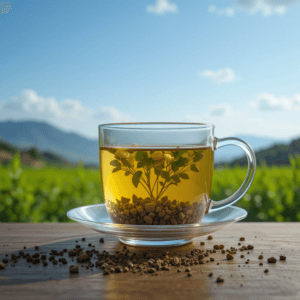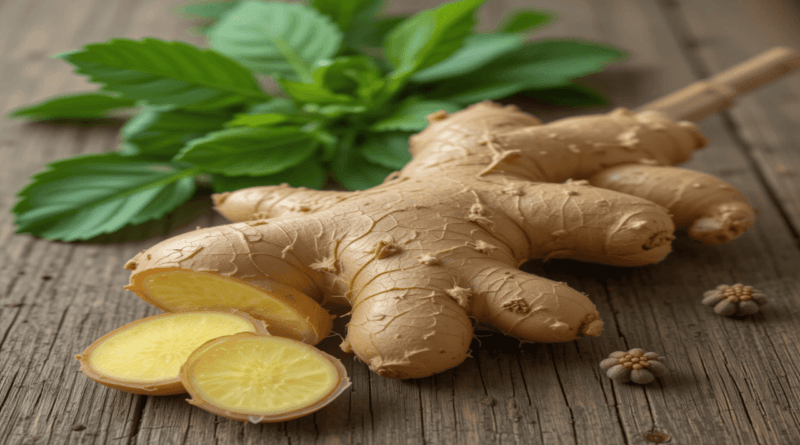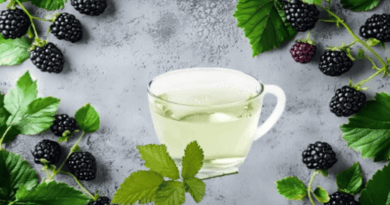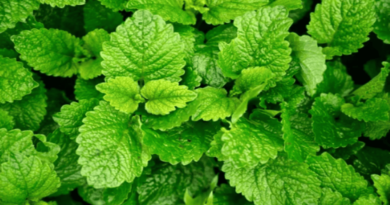The Wonders of Ginger as a Tea Herb From Root to Cup
Ginger, a versatile and aromatic root, has long held a cherished spot in kitchens and apothecaries worldwide. When steeped into tea, ginger transforms into a soothing elixir packed with health benefits and bold flavors. In this article, we delve into ginger’s journey from root to cup, its nutritional value, and its role in promoting overall wellness.
The Origins of Ginger: A Historical Perspective
Ginger (“Zingiber officinale”) originates from Southeast Asia, where it has been cultivated for centuries. Ancient civilizations revered it for its medicinal and culinary applications. Chinese, Indian, and Middle Eastern cultures used ginger to treat various ailments, ranging from indigestion to respiratory issues. Today, it remains a cornerstone in traditional remedies and modern beverages alike.
Nutritional Powerhouse: Why Ginger Deserves a Spot in Your Cup

Ginger tea is more than just a flavorful brew. It offers an array of essential nutrients and bioactive compounds:
- Gingerol: This potent antioxidant and anti-inflammatory compound provides numerous health benefits, including reducing nausea and muscle soreness.
- Vitamin C: Boosts immunity and enhances skin health.
- Magnesium and Potassium: These minerals support heart health and maintain proper hydration levels.
Drinking ginger tea regularly can improve digestion, alleviate cold symptoms, and promote relaxation. Its natural spiciness also makes it a warming choice during cooler months.
How to Make Ginger Tea: A Simple Guide
Brewing ginger tea at home is quick and rewarding. Follow these steps for a perfect cup:
- Prepare the Ginger: Wash and peel a fresh ginger root. Slice it into thin pieces to maximize flavor extraction.
- Boil the Water: Bring a pot of water to a rolling boil.
- Steep the Ginger: Add the ginger slices to the boiling water. Reduce the heat and let it simmer for 10-15 minutes.
- Enhance the Flavor: Sweeten your tea with honey or add a squeeze of lemon for an extra zing.
- Strain and Serve: Pour the tea through a strainer into your cup and enjoy.
Experiment with additional ingredients like cinnamon, turmeric, or mint for unique variations.
The Health Benefits of Ginger Tea: A Closer Look
Boosts Immunity
Ginger’s natural antioxidants strengthen your immune system, helping you fend off colds and infections. Its anti-inflammatory properties soothe sore throats and reduce congestion.
Eases Digestion
Ginger tea aids in breaking down food, relieving bloating, and preventing nausea. It’s particularly effective for motion sickness and morning sickness during pregnancy.
Supports Weight Management
Drinking ginger tea can help regulate appetite and boost metabolism. It’s a calorie-free alternative to sugary beverages, making it a great addition to weight management plans.
Promotes Relaxation
A warm cup of ginger tea can ease stress and improve sleep quality. The comforting aroma and spicy warmth calm both the mind and body.
Sustainability and Ginger: A Thoughtful Approach
When choosing ginger, opt for organically grown roots whenever possible. Supporting local farmers and sustainable practices ensures you get the freshest produce while contributing to environmental preservation. Composting ginger scraps after brewing also reduces waste.
Incorporating Ginger Tea Into Your Daily Routine
Make ginger tea a part of your daily wellness rituals. Start your morning with a steaming cup to awaken your senses. Sip on it mid-afternoon to boost your focus and energy. Unwind with a soothing brew in the evening to prepare for restful sleep.
Conclusion
From its rich history to its multitude of health benefits, ginger proves itself as a remarkable tea herb. By incorporating it into your diet, you can enhance your well-being while enjoying its robust flavors. Brew a cup today and experience the wonders of ginger tea for yourself.
References
- Bordoni, A., et al. (2021). “Ginger and Health: A Comprehensive Review.” Journal of Nutritional Science.
- WHO. (2022). “Herbal Medicine and Its Impact on Health.” World Health Organization.
- Zhang, J., et al. (2020). “The Bioactive Compounds of Ginger and Their Health Benefits.” Food Chemistry.




